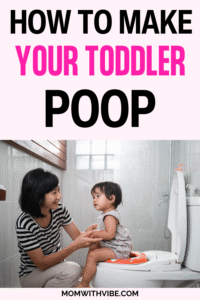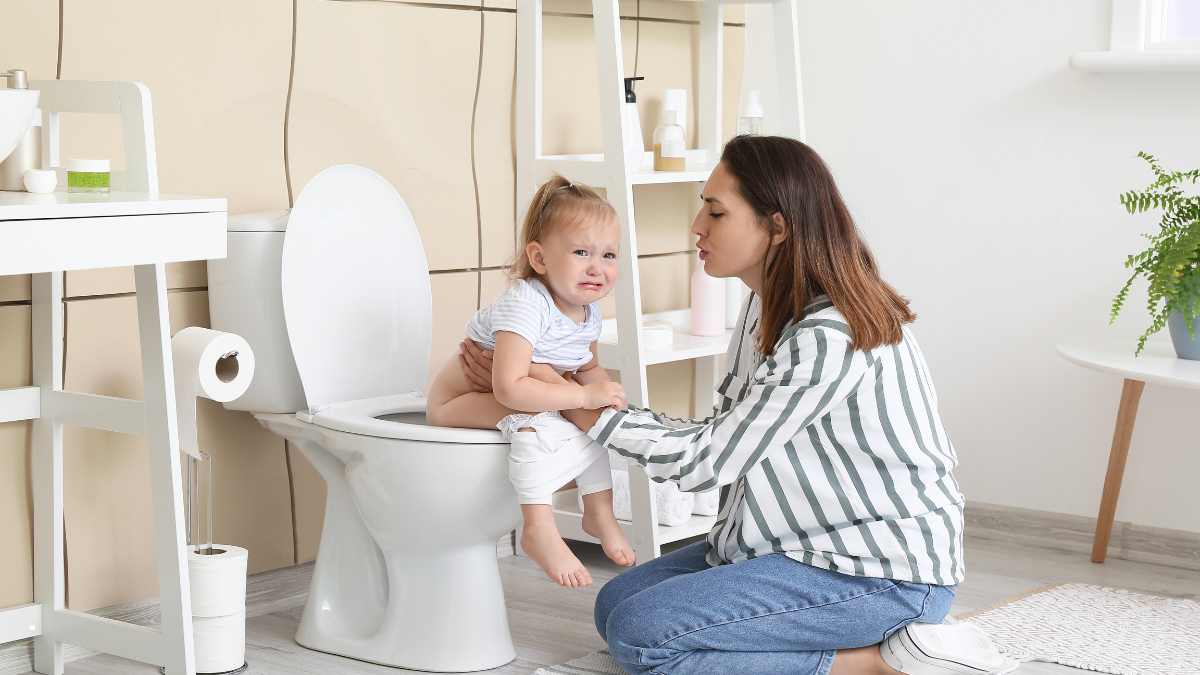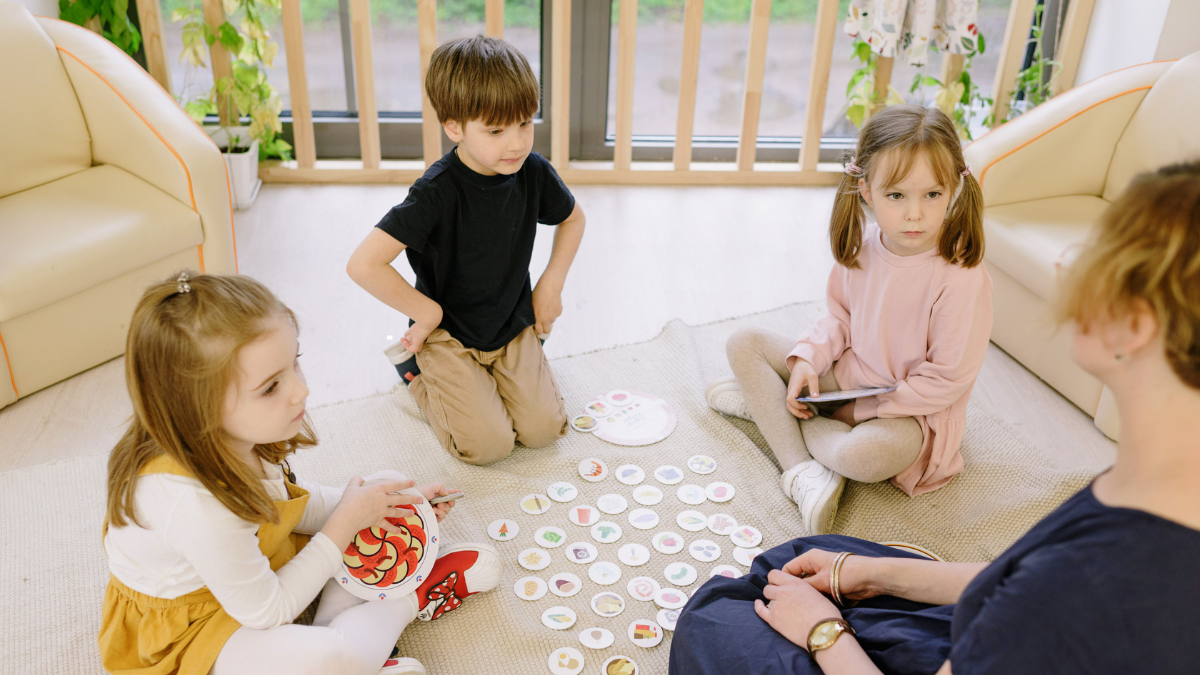As a parent, it might be a source of concern when your toddler is having problems with pooping. Whether it is constipation, toilet refusal, or a normal period of developmental frustration, you as a parent must enable your child to experience this ordeal with patience and understanding.
The following is the recommendation on the manner of helping your child to poop and rendered the process not so troublesome for both you and the child.
1. Give Plenty of Water
Dehydration is one of the most obvious constipation triggers that affect toddlers. Have your child take enough water throughout the day. The focal point with toddlers ought to be roughly 4 cups (32 ounces) of water daily, yet some extra intake may be needed in warm, sunny days or because of physical activity. Dilute fruit juices, likely apple juice or pear juice, can also be provided as it can act as a natural laxative because it has sorbitol.
Related: How to Make Your Toddler Listen
2. Increase Fiber Intake
Fiber can be valuable to supporting the movement of things in the digestive system of your toddler. Consumption of foods rich in fiber like whole grains, fruits, and vegetables is the way through which constipation is preventable. Offer snacks in the form of apple slices, whole-grain crackers, and carrots. Beans, sweet potatoes, and oats are other sources of high fiber.
Related: How To Make Your Toddler Eat
3. Marketing of Physical Activity
Exercise also helps the bowel function properly. Toddlers that are active have fewer digestive issues. Have your toddler run, play, or jump outside. It could easily be activated by doing simple things like walking, dancing, or even playing around on a small trampoline.
Related: 7 Things to Do When Your Baby Is Teething
4. Make Potty Time Fun
With toddlers who are still learning how to use the potty, the concept of the potty may be accompanied by anxiety or even fear. Allow the toddler to feel free by making the experience of going to the potty a nice thing to do. Rewards, potty songs, or even using a favorite toy in the bathroom will suffice. The more relaxed and enjoyable the process is, the more likely they will come around.
5. Acquire a Routine
Bathroom habits are creatures of habit, and so are toddlers. Toddlers should be sat on the potty at regular times even when they are not having the urge to go. Try sitting them between meals or before bed-time. This helps their body adjust to the concept of having to go at a particular part of the day.
6. Use Stool Softeners (If Needed)
In case your toddler is having problems with constipation, stool softeners can be helpful. Before you give your toddler any medicine, it is important that you consult your pediatrician. Depending on the type of stool problem, your doctor will recommend the appropriate dosage and safe arrangement of stool softeners or laxatives that are secure to use for young children.
Related: How To Teach Your Kids About Money
7. Belly Massages
Belly massages can also help stimulate digestion and provide relief in cases of constipation. Gently stroke your toddler’s belly in a circular motion as this mimics the natural process of digestion. This might also help your toddler relax, which could lead to a bowel movement before potty time.
8. Exercise Patience and Forbearance
It is possible that there are elements of fear, discomfort, or other factors that lead to a toddler’s reluctance to poop. During this time, you are expected to remain calm and patient. Avoid pressuring your child because they may feel anxious, and this may make the process even more difficult for them.
9. Check for Medical Concerns
If your toddler still has problems with pooping, or you notice blood in their stool, significant pain, or a major change in their habits, you should consult your pediatrician. It could be chronic constipation or another medical issue, and your doctor will be able to provide advice and solutions.
Conclusion
Helping your toddler poop may be a tricky task that may require time to achieve; however, with proper mechanisms in place, it can be less stressful and easier to accomplish.
Ensuring adequate water intake, providing fiber-rich foods, encouraging physical activity, and maintaining an entertaining routine will help keep your toddler’s digestive system in check. Just make sure to stay calm, and in case of complications, consult a doctor. Soon enough, your toddler will be back to their normal pooping habits!
Save the pin for later

- 8th Month Pregnancy Care: What To Expect, Dos And Don’ts - January 17, 2026
- 80 Beautiful Hispanic Girl Names for Your Baby - January 8, 2026
- 7 Physical Signs Your Baby Still Isn’t Ready to Come Out - November 28, 2025



